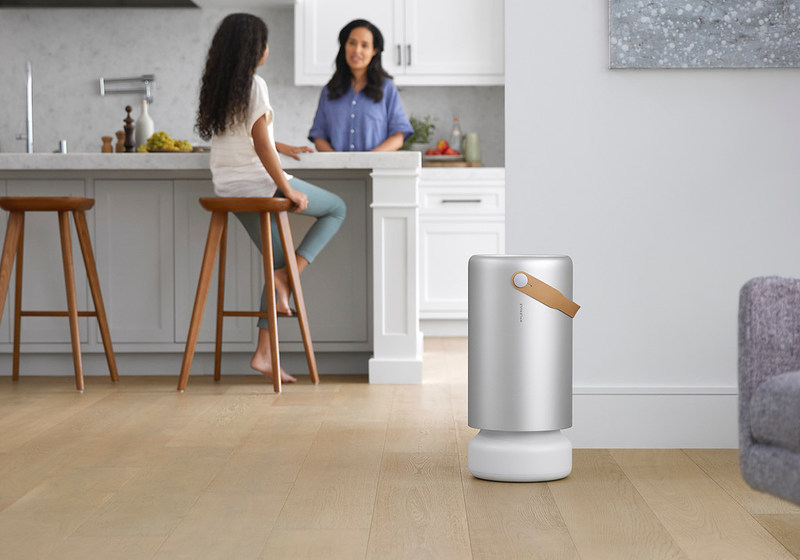Air purifier manufacturer Molekule Group—and its affiliate, former San Francisco startup Molekule—have filed for Chapter 11 bankruptcy protection and identified the city’s homeless crisis as a major factor.
The petition filed Tuesday in the U.S. Bankruptcy Court in the Southern District of Florida reports that the company has around $47 million in debts compared with $11.6 million in assets.
According to a filing from Ryan Tyler, the company’s chief financial officer, one of the major events leading up to Molekule’s bankruptcy declaration was its lease at 1301 Folsom St. in the SoMa neighborhood.
Molekule started a seven-year lease spanning the entirety of the building in February 2019. The monthly base rent began at $209,231 with an annual 3% increase.
The bankruptcy petition alleges that the company abandoned its headquarters in May “out of concern for its employees’ safety” and attempted to negotiate with its landlord to terminate the lease.
“San Francisco’s homeless crisis created a dangerous environment around the SF Headquarters, especially in the area between the SF Headquarters and the nearest public transit stop,” Tyler stated in his declaration.
But three former Molekule employees who spoke on the condition of anonymity said the safety situation described in the filings was an exaggeration. Although there were issues with cleanliness around the office location, the former employees don’t remember safety being a primary concern while they worked there.
An attorney representing Molekule in its bankruptcy proceedings did not respond to a request for comment.
According to the former employees, the office was only intermittently used after March 2020, and far from dissuading workers because of safety concerns, Molekule attempted to draw people in by installing a pingpong table and touting the effectiveness of its products in keeping the office clean and safe.
Molekule had other signs of financial distress, including two rounds of layoffs in 2020 and 2021 and a leadership change that ousted the original founding team, the former employees said.
The first workforce reduction was paired with an unsuccessful effort to sublet a portion of the 1301 Folsom St. office to another company, according to one former employee. Two former employees also said the company’s financial challenges were related to an unsuccessful effort to transition from a consumer to an enterprise model.
The company’s bankruptcy filing attributes some of its lease challenges to “changing remote work dynamics accelerated by the Covid-19 pandemic.”
Molekule’s San Francisco landlord Group i filed suit in San Francisco Superior Court last month, alleging breach of contract over unpaid rent. The landlord served the company a notice of default after Molekule failed to pay its rent from May to September this year, racking up more than $1.2 million in accrued rental costs and late fees, according to the suit.
Molekule said in its bankruptcy petition that it plans to use the reorganization process to reject its current San Francisco lease.
One of the other factors in the company’s bankruptcy listed in its legal filing was a fractured partnership with Aura Smart Air, an Israeli air purifier company.
Aura’s failure to submit source code for a product known as Molekule 360 Hub led to the product’s suspension shortly after its launch and “severely impacted the Debtors’ revenue and growth strategy,” according to the bankruptcy filing.
In its second-quarter earnings report, Molekule announced a $25 million net loss and that it would be terminating its planned merger with Aura.
Molekule, founded in 2014, was known for manufacturing high-end air purifiers that retail for $360 to $1,000. The company was known for a proprietary system that destroyed pollutants rather than trapping them in a filter.
But Molekule’s technology was called into question by independent reviewers like Wirecutter, which labeled the company’s product as “The Worst Air Purifier We’ve Ever Tested.” Two former employees said the review led to a severe dropoff in sales and a round of job cuts.
Molekule merged with publicly traded competitor AeroClean Technologies in 2020 to become Molekule Group in a deal that valued the company at around $25 million. Prior to the merger, Molekule raised more than $100 million in venture capital funding.
The company’s stock, which trades on the Nasdaq exchange, is down more than 90% from the beginning of the year.
